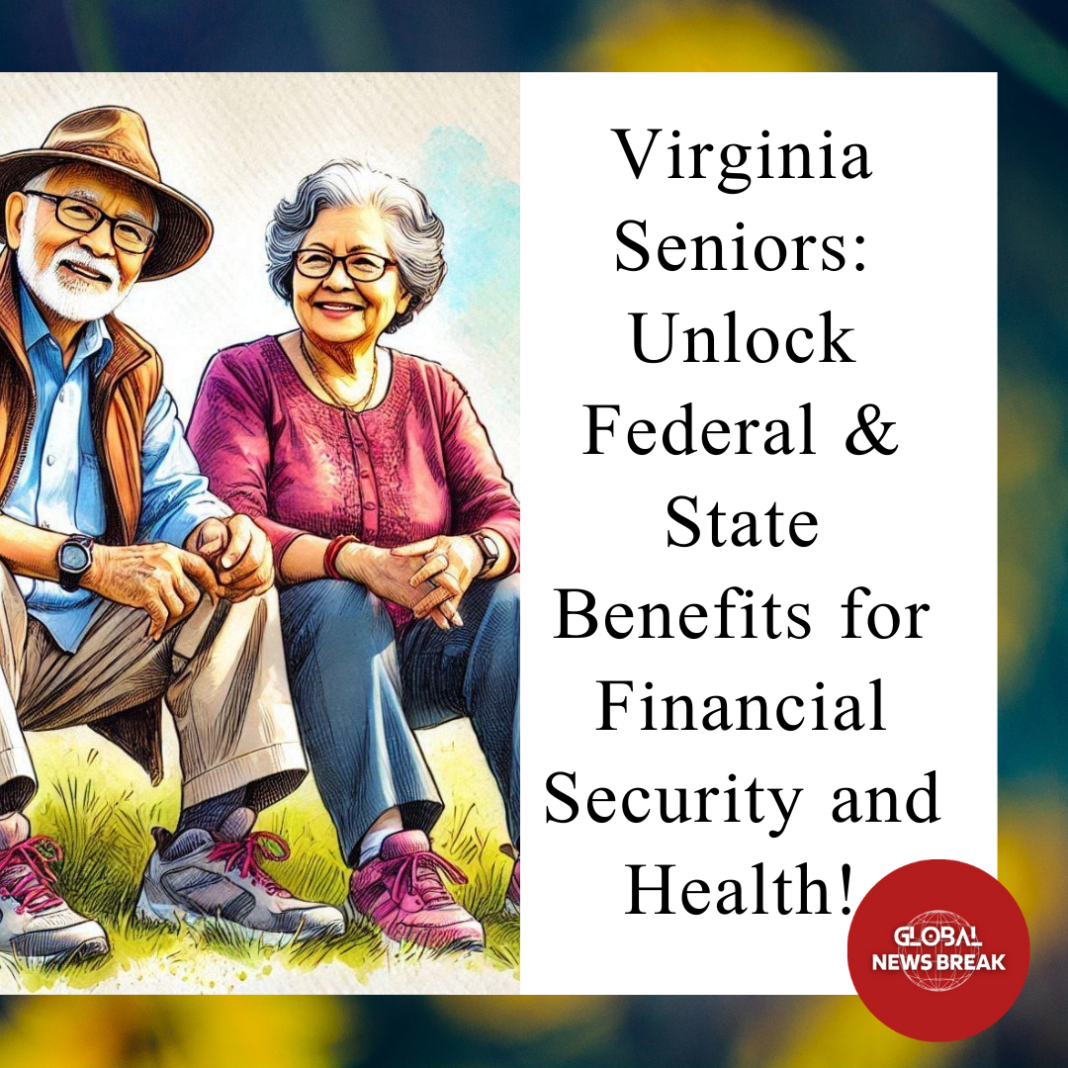As a U.S. citizen aged 60 and a resident of Virginia, you are eligible for a variety of federal and state benefits aimed at enhancing your financial security, healthcare, and overall quality of life. This guide provides accurate and comprehensive information on these benefits to ensure you make the most of the opportunities available.
Federal Benefits
1. Social Security Benefits
• Retirement Benefits: Eligible at age 62, but delaying benefits until full retirement age (66-67, depending on your birth year) or later increases your monthly payments.
• Disability Benefits: If you are unable to work due to a qualifying disability, you may be eligible for Social Security Disability Insurance (SSDI).
2. Medicare
• Eligibility: Medicare generally begins at age 65, but individuals with qualifying disabilities or certain health conditions may be eligible earlier.
3. Supplemental Security Income (SSI)
• SSI provides financial assistance to low-income seniors with limited resources, helping meet basic living expenses.
4. Veterans Benefits
• Veterans can access a range of services, including healthcare, disability compensation, pensions, and housing assistance through the Department of Veterans Affairs (VA).
5. Housing Assistance
• Federal programs like Section 8 Housing Choice Vouchers help low-income seniors by providing affordable housing options and rental assistance.
Virginia State Benefits
1. Virginia Retirement System (VRS)
• If you were a public employee in Virginia, you might qualify for pension benefits through VRS, providing long-term financial security.
2. Tax Relief for Seniors
• Real Estate Tax Relief: Seniors aged 65+ may qualify for property tax exemptions or reductions, depending on income and net worth.
• Personal Property Tax Relief: Some localities also offer tax reductions on personal property like vehicles.
3. Health and Long-Term Care Programs
• Medicaid: Available for low-income residents, covering essential healthcare services, including long-term care.
• PACE Program: Offers comprehensive healthcare to help seniors remain in their communities rather than moving to institutional settings.
4. SNAP (Supplemental Nutrition Assistance Program)
• Provides eligible seniors with monthly benefits to purchase groceries, ensuring access to nutritious meals.
5. Employment and Training
• The Virginia Employment Commission provides resources, training, and job placement services for older adults seeking employment.
6. Senior Transportation Services
• Many Virginia localities offer free or reduced-cost transportation services to help seniors access medical appointments, grocery stores, and other essential services.
Additional Benefits and Resources
1. Senior Centers
• Senior centers across Virginia provide recreational, educational, and social activities, fostering engagement and community involvement.
2. Caregiver Support
• Programs like the Virginia Lifespan Respite Voucher Program offer financial assistance to caregivers for respite care, helping them manage responsibilities more effectively.
3. Legal Assistance
• Free or low-cost legal aid is available through organizations like Virginia Legal Aid to help seniors with legal issues related to housing, healthcare, and estate planning.
4. Utility Assistance
• LIHEAP (Low Income Home Energy Assistance Program): Assists eligible seniors in managing heating and cooling costs, particularly during extreme weather conditions.
5. Discounts and Community Programs
• Seniors can enjoy discounts on public transit, recreational activities, and services in many Virginia communities, helping reduce daily expenses.
Taking Action
Steps to Access Benefits:
1. Federal Benefits: Visit the Social Security Administration, VA, and Medicaid websites to explore eligibility and apply for relevant programs.
2. Virginia State Programs: Contact the Virginia Department for Aging and Rehabilitative Services (DARS) and local Area Agencies on Aging (AAA) for personalized assistance.
3. Local Resources: Check with your city or county government to learn about additional benefits such as tax relief, transportation, or housing programs.
Conclusion
Virginia provides a wide array of federal and state benefits tailored to seniors. By leveraging these programs, you can enhance your financial stability, healthcare access, and overall well-being. Whether you’re planning for the future or seeking immediate support, this guide ensures you are well-informed about your options in the golden years of life.
Sources and Useful Links
Federal Programs
1. Social Security Administration (SSA): https://www.ssa.gov
2. Medicare: https://www.medicare.gov
3. Supplemental Security Income (SSI): https://www.ssa.gov/ssi/
4. U.S. Department of Veterans Affairs (VA): https://www.va.gov
5. Housing Choice Voucher Program (Section 8): https://www.hud.gov/topics/housing_choice_voucher_program_section_8
Virginia State Programs
1. Virginia Department for Aging and Rehabilitative Services (DARS): https://www.vadars.org
2. Virginia Retirement System (VRS): https://www.varetire.org
3. Medicaid in Virginia: https://www.dmas.virginia.gov
4. PACE (Program of All-Inclusive Care for the Elderly): https://www.npaonline.org
5. Supplemental Nutrition Assistance Program (SNAP) in Virginia: https://www.commonhelp.virginia.gov
6. Virginia Employment Commission (VEC): https://www.vec.virginia.gov
7. Senior Tax Relief Information (Local Government Portals): Check with your city or county government website.
Additional Resources
1. Low Income Home Energy Assistance Program (LIHEAP): https://www.acf.hhs.gov/ocs/low-income-home-energy-assistance-program-liheap
2. Virginia Legal Aid: https://www.valegalaid.org
3. Virginia Lifespan Respite Voucher Program: https://www.vadars.org/cbs/vlrv.htm
4. Area Agencies on Aging (AAA) Locator: https://eldercare.acl.gov
A global media for the latest news, entertainment, music fashion, and more.




